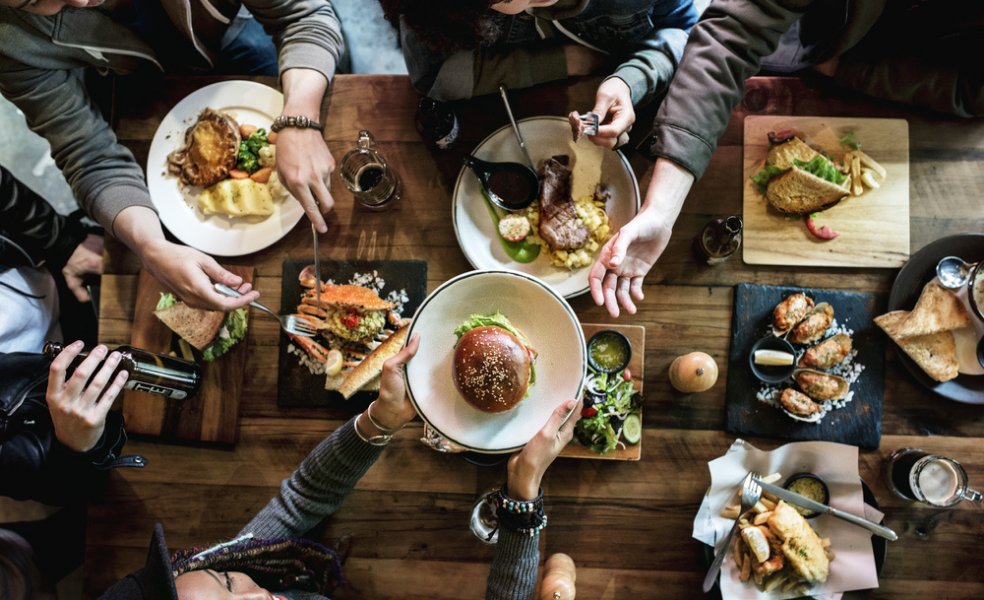How to Get a 5-Star Food Hygiene Rating


If you’ve ever worked in, eaten at or even walked past a food establishment, you’re bound to recognise The Food Standards Agency’s hygiene rating
But what exactly is the food hygiene rating and how can you make sure your business gets to display the highest scores on the doors.
Run by the Food Standards Agency, the Food Hygiene Rating Scheme (FHRS) operates in England, Wales, and Northern Ireland.
Once your food business has been registered with your local authority, an inspector may be sent to give you a hygiene rating.
The food hygiene rating uses a straightforward 1-5 system to provide consumers with a clear indication of hygiene standards:
5 – hygiene standards are very good
4 – hygiene standards are good
3 – hygiene standards are generally satisfactory
2 – some improvement is necessary
1 – major improvement is necessary
0 – urgent improvement is required
It’s a legal requirement to display this rating in Wales and Northern Ireland and, whilst it’s voluntary at the moment, it’s likely this will eventually become a requirement for English businesses too.

When rating a business, Environmental Health Officers (EHOs) will focus on three major areas:
Food hygiene compliance – including an assessment of how food is handled, prepared, and stored.
Structural compliance – how clean is the building and its facilities? Is the lighting suitable?
Management confidence – are staff being trained correctly to maintain hygiene standards? And what policies and procedures support this?
If a business performs strongly in all three areas it'll be granted the 5-star food hygiene rating. However, if a business performs poorly, it'll have to undergo more regular checks.

Common mistakes to avoid include storing raw items alongside ready-to-eat foods. Remember, raw foods are not just meat and fish – uncooked and unwashed vegetables must also be stored separately.
Be sure to implement a clearly labelled storage system with use-by dates displayed.
Ensure food should always be stored on racks and not on the floor.
Avoid cross-contamination by washing raw and ready-to-eat foods in different sinks.
If you don’t have access to multiple sinks, establish a food preparation schedule and stick to it. For example, prepare any ready-to-eat foods first thing, then clean the area thoroughly before moving onto raw vegetables.
If you’re lucky enough to have a larger kitchen area, set out separate workspaces for raw fish, meat, vegetables and ready-to-eat foods. If you’re working in a smaller space, create a plan for prepping each food type at separate points in the day, ensuring utensils and surfaces are properly cleaned in between each stage of preparation.
Cleanliness is extremely important when working within the hospitality industry. Create a cleaning schedule and stick to it, breaking down each task and making sure the workspace is cleaned consistently every day.
Make sure the handwashing sink is kept clean and is always stocked with antibacterial soap. Blue roll should also always be available so that anyone in the kitchen can dry their hands or mop up spills quickly.
Empty bins as regularly as possible, and never allow them to overflow.
Deep clean your fridges every month, and your ovens every week.

Training your kitchen staff is extremely important to ensure all your food is prepared safely, with minimal risk of cross-contamination.
Your team should know the importance of wearing protective clothing and head coverings, shouldn't wear jewellery or watches in the kitchen, and should be fully aware of hand washing best practices.
You should also provide regular refresher training for everyone who's expected to work in the kitchen.

To achieve a high rating, you must be able to demonstrate that up-to-date records are being kept of all of the above activities.
You'll also need to document a food safety policy together with daily check sheets for fridge and freezer temperatures, as well as food temperatures.
Now you know our top tips on how to achieve a 5-star food hygiene rating.
Do you have a business in the catering industry that you'd like to sell? Click here to arrange a call back with one of our experts.
Now you know our top tips on how to achieve a 5-star food hygiene rating.
Do you have a business in the catering industry that you'd like to sell? Click here to arrange a call back with one of our experts.
Get quick and easy insight into the real value of your business, without any obligations.
At Intelligent, all of our experts use a specific formula that will give you a free and highly accurate baseline valuation so that you've got a figure to work with that most realistically resembles the value of your business.